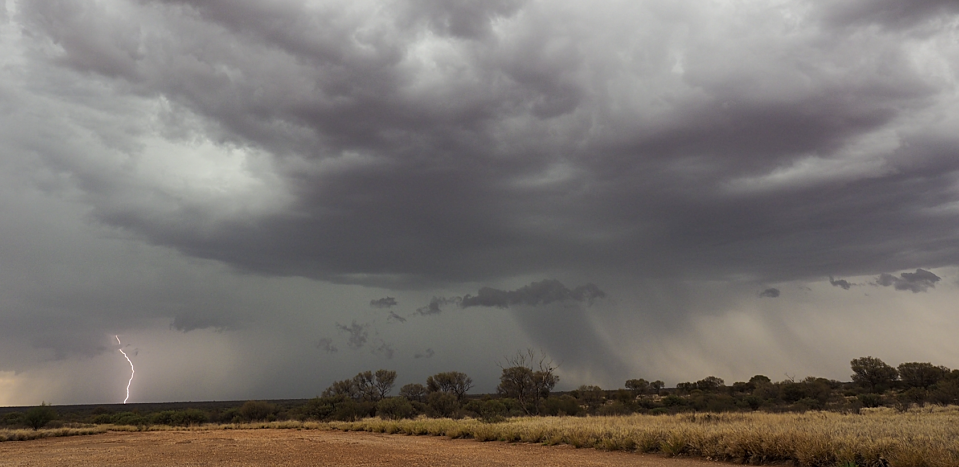
One Nation’s chances as a dominant conservative party are piñata-like
Posted on 11 Feb 2026
Opinions polls insist Pauline Hanson's fortunes are on the rise, but it is likely that enthusiasm…
Posted on 17 Sep 2024
By David Crosbie

Love him or loathe him, departing NDIS minister Bill Shorten has been a solid supporter of the sector, says Community Council for Australia CEO David Crosbie.
Bill Shorten was a friend and champion of the charities and not-for-profit sector even when it wasn’t politically or publicly popular.
Anyone who has been in politics long enough will have made some enemies and supported views that many people disagree with.
Bill Shorten was first elected to the Parliament in 2007. Not everyone in our sector would say he was always supportive of their views, their organisation, or the needs of their community.
His decision to leave politics and take up a senior role at the University of Canberra has received mixed reviews, as we would expect.
I disagreed with Bill Shorten on several issues, but he was one of few government ministers ever to deliver real reform for our sector.
From my perspective, one of the most important aspects of Bill Shorten’s extensive political legacy is not just the National Disability Insurance Scheme (NDIS), which he championed along with Jenny Macklin and others, but the establishment of the Australian Charities and Not-for-profits Commission (ACNC) and laying the groundwork for the Charities Act of 2013.

I could tell many stories about meetings with Bill Shorten. He is a very bright man who has an amazing capacity to be briefed once on an issue and know it well enough to immediately walk out in front of a crowd and hit every talking point using the appropriate language and terminology.
One of my favourite stories is of when former Baptist minister and World Vision CEO Tim Costello and I were lobbying him to invest in the establishment of a new federal regulator for the charity sector, a one-stop shop.
Bill was initially quite reluctant, as was his then chief of staff, Mat Tinkler (now head of Save the Children Australia).
He already had a big and demanding ministerial agenda. We’d raised the issue numerous times and were once again lobbying him over coffee at Aussies in Parliament House.
Bill become a little frustrated at our persistence and said something like “Look, you’ve been pushing this for a while now. Tell me your one most powerful reason why I should buy into this whole regulator-for-the-charities-sector issue.”
I looked at Tim, who took a few seconds before replying, “It’s a message from God, Bill, a good deed to add to your record.”
Both Bill and I were a little taken aback and not sure how serious Tim was being. Bill took a moment and then said that he was surprised with that response, and he was surprised for three reasons:
“First, I’m surprised to find out that God gives you messages, Tim.
“Second, I’m surprised that if God does give you messages, that the messages would be about this subject.
“And third, I’m surprised that if God is talking to you about this subject, he isn't talking to me about it, given that I could make the decision.”
Tim looked at Bill and said, “Now Bill, do you really want me to tell you why God isn’t talking to you?”
Bill Shorten gave what I believe was the first serious address at the National Press Club from a government minister talking about our sector. It was an impressive presentation.
It took several months and numerous consultations and discussions with various groups, mostly organised by Senator Ursula Stephens and then Assistant Treasurer Bill Shorten, for an agreement to be developed to allocate the funds required for the establishment of the first ACNC Task Force.
Again, it was Bill Shorten who shepherded the initial proposal through the budget process, including the Expenditure Review Committee.

The struggle to establish the ACNC and have it accepted by all sides of politics took several years and involved many good people, some groundbreaking leadership, and crucial interventions from a range of key supporters, but without this initial work from Bill Shorten, Ursula Stephens and Mat Tinkler, it wouldn’t have happened.
Bill Shorten gave what I believe was the first serious address at the National Press Club from a government minister talking about our sector. It was an impressive presentation.
Given his iminent retirement from politics, I think it is worth revisiting some of his lines from that speech – most of which seem as current today as they were over a decade ago:
“Interestingly, despite your numbers, you don't have the influence on national policy your weight should warrant. There is very limited public discussion about your needs or your issues as a sector.
“One of the inherent difficulties for the Third Sector is that you are all so flat-out with the activities and services of your group that to some extent, overall sector issues have missed out.
“When I talk with people in the not-for-profit sector and ask them what they most need, they usually talk about the needs of their clients, the people they serve, their community. Making their organisation stronger or more sustainable is a second-order issue, and the needs of the broader not-for-profit sector come a long way behind…
“And though there isn't a huge physical monument to testify to the grandeur of your sector's work, think about what you collectively build.
“You build lives. You build wellbeing.
“You build better futures, bigger opportunities, greater self-esteem.
“You build the common wealth of a town, a nation.
‘You build a better Australia.
“And you do it, as it were, between the lines. Between public and private, between profit and tax, you are there, the not-for-profit sector…”
“In the century ahead many public problems will not be solved by state intervention, but by an improvement in the soul of the neighbourhood, an unleashing, an empowering of the better angels of our nature.
“What in the 20th century we called the welfare state has given way in the 21st to a more delicate, more complex arrangement of social health by other means.
“The third way. A seeking out of the better angels within the neighbourhood, the community…”
“I believe there are such things as neighbourhood and nationhood and comradeship and community.
“Between the lines of public and private, those good, glad shadows, that army of shadows, the army of better angels are indeed there for us.
“I saw firsthand at Beaconsfield, and then at Marysville, and Flowerdale, and Kinglake, in the bushfire cinders and twisted wreckage of Victoria's heartland, how this collaboration works...”
On a personal note, I would add: thanks for being there for us, Bill.
You have been a unique politician, a champion of the power of community.
I hope you are proud of your legacy for our sector and the communities we serve. We wish you well in your next adventure.
David Crosbie has been CEO of the Community Council for Australia for the past decade and has spent more than a quarter of a century leading significant not-for-profit organisations, including the Mental Health Council of Australia, the Alcohol and Other Drugs Council of Australia, and Odyssey House Victoria.

Posted on 11 Feb 2026
Opinions polls insist Pauline Hanson's fortunes are on the rise, but it is likely that enthusiasm…

Posted on 04 Feb 2026
As we move into 2026, I can’t help but think the world is wobbling a little.

Posted on 28 Jan 2026
The 2026 Australia Day Honours list delivered a sobering reality check. After reaching gender…

Posted on 28 Jan 2026
This year’s Adelaide Writers’ Week began with the cancellation of a talk by Palestinian-Australian…

Posted on 16 Dec 2025
As Australia prepares to welcome its one millionth refugee, human rights advocate and former…

Posted on 10 Dec 2025
What a year 2025 has been, particularly at a national level where the Parliament and politics as we…

Posted on 26 Nov 2025
Charities and not-for-profits can be outstanding advocates for their cause, their community, their…

Posted on 12 Nov 2025
Managing a charity or not-for-profit in Australia is often more complex than it may appear. On any…

Posted on 29 Oct 2025
One of the most contentious debates across many areas of human services is the for-profit versus…

Posted on 28 Oct 2025
Workers in the not-for-profit sector lift up communities, care for those in crisis and do work that…

Posted on 08 Oct 2025
The cost of climate change's impact on Australian life is increasingly well documented. The…

Posted on 08 Oct 2025
The Wurundjeri Indigenous people who live in and around Melbourne understand their environment as…